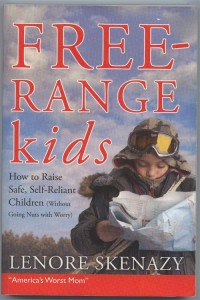
If there’s one thing parents are passionate about, it’s how they raise their kids—and that passion can quickly lead to heated debates. From TikTok threads to playground gossip, opinions on different parenting styles often clash hard. Everyone has an idea of what’s “best,” but as new trends emerge and old ones evolve, the disagreements seem louder than ever. Whether you’re team gentle parenting or swear by a strict schedule, these parenting styles are stirring up big feelings on both sides. Curious where your approach lands on the controversy scale? Here are eight methods that are making waves—and why they’re so polarizing.
1. Gentle Parenting
Gentle parenting emphasizes empathy, emotional regulation, and respectful communication. Supporters say it nurtures emotionally secure kids and reduces behavior rooted in fear. Critics argue it can lead to permissiveness or a lack of boundaries if not done carefully. Social media has helped popularize this parenting style, but it’s also fueled debates over what’s “gentle” versus what’s simply ineffective. Whether you love or loathe it, gentle parenting is one of the most talked-about parenting styles right now.
2. Free-Range Parenting
Free-range parenting gives kids more independence and encourages them to explore the world with less adult interference. Advocates believe this boosts confidence, problem-solving, and real-world readiness. Detractors, however, worry it’s too risky or even neglectful, especially in today’s safety-conscious culture. Debates often arise when free-range parents allow young kids to walk alone or play unsupervised. It’s a parenting style that tests how much freedom is too much.
3. Helicopter Parenting
Helicopter parenting is all about hovering—closely monitoring everything from grades to friendships. It’s often rooted in love and protection, but critics say it creates anxious, dependent kids. Opponents argue that children need space to make mistakes and learn resilience, while supporters see it as being involved and proactive. The fine line between support and smothering is at the heart of this parenting style debate. It’s a lightning rod for discussions around overparenting and boundaries.
4. Attachment Parenting
Attachment parenting emphasizes closeness through practices like babywearing, extended breastfeeding, and co-sleeping. Supporters believe it fosters a secure emotional bond and long-term trust. Critics worry it places too much pressure on parents—especially mothers—and may delay independence. This parenting style often sparks fierce debates around sleep training, daycare, and self-soothing. It’s a style grounded in connection but often judged for its intensity.
5. Authoritative Parenting
Authoritative parenting strikes a balance between firm expectations and emotional support. Many experts label it the “gold standard” because it promotes both structure and warmth. Still, some parents argue it’s easier said than done, especially for those managing high-stress households. Others claim it can feel controlling if not adapted to a child’s personality. Even this widely praised approach isn’t safe from debate in the world of parenting styles.
6. Permissive Parenting
Permissive parenting is known for few rules, lots of freedom, and minimal discipline. Supporters often say it fosters creativity and individuality, while critics argue it can lead to entitled or poorly behaved children. This style raises questions about where to draw the line between freedom and chaos. When kids are allowed to self-regulate too early, things can spiral quickly. It’s a parenting style that’s hotly contested in classrooms and family gatherings alike.
7. Snowplow Parenting
Snowplow parenting, also called bulldozer parenting, involves removing all obstacles from a child’s path to ensure success. Think rescheduling homework, intervening in social issues, or calling colleges on their behalf. While it’s well-meaning, it’s been criticized for raising kids who lack resilience and problem-solving skills. Advocates say it’s just being a strong advocate for your child in a competitive world. The debate? Whether it helps kids, or handicaps them long term.
8. Traditional Authoritarian Parenting
This strict, rules-based style demands obedience and often includes punishment as a key part of discipline. It was more common in past generations and is still practiced in many households today. Supporters believe it instills respect and strong values, while opponents say it can damage self-esteem and emotional health. Critics link this style to fear-based parenting and emotional distance. Few parenting styles spark such intense generational debates.
Parenting in the Age of Judgment
The truth is, most parents don’t fit perfectly into just one category—and that’s okay. While labels like “gentle,” “authoritarian,” or “free-range” help define trends, parenting is deeply personal and shaped by culture, experience, and your child’s unique needs. The parenting styles that spark heated debates often reflect broader societal values and fears. At the end of the day, what matters most is that you’re showing up, learning, and doing your best.
Which of these parenting styles do you connect with, or totally disagree with? Share your perspective in the comments and join the conversation!
Read More:
Real Talk: Blunt Parenting Advice You Won’t Hear Elsewhere
14 Misguided Parental Advice We Need to Abandon
Catherine is a tech-savvy writer who has focused on the personal finance space for more than eight years. She has a Bachelor’s in Information Technology and enjoys showcasing how tech can simplify everyday personal finance tasks like budgeting, spending tracking, and planning for the future. Additionally, she’s explored the ins and outs of the world of side hustles and loves to share what she’s learned along the way. When she’s not working, you can find her relaxing at home in the Pacific Northwest with her two cats or enjoying a cup of coffee at her neighborhood cafe.



 How would you feel about letting your child go to a neighborhood park to play on their own? Do you allow your children the freedom you had growing up? I think we would all like to do that – but realistically speaking – isn’t it too dangerous? Some people say — no. As I was doing research for my
How would you feel about letting your child go to a neighborhood park to play on their own? Do you allow your children the freedom you had growing up? I think we would all like to do that – but realistically speaking – isn’t it too dangerous? Some people say — no. As I was doing research for my